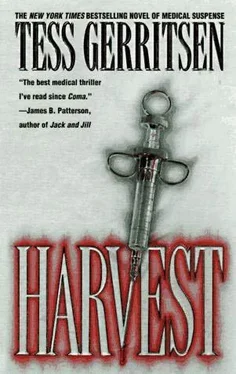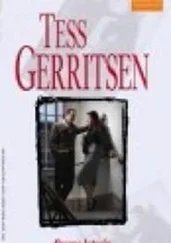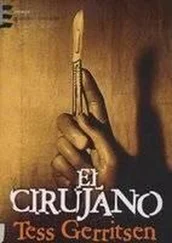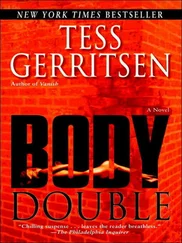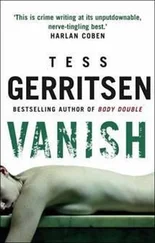It was the morphine. She was grateful for the morphine. It took away her pain and it opened some secret gate in her mind, allowing images to flow in of a remembered life, almost over, now. She had heard of life described as a circle, a returning to the point of one's beginning, but her own life did not seem nearly so organized. Rather, it was like a tapestry of unruly threads, some broken, some ravelled, none of them straight and true.
But woven with so many, many colours.
She closed her eyes and that secret gate swung open. A path to the sea. Hedges of beach roses, pink and sweet-smelling. Warm sand swallowing up her toes. Waves tumbling in from the bay. The luxury of hands skimming lotion down her body.
Geoffrey's hands.
The gate swung wider, and he stepped in, a memory fully rendered. Not as he was, on that beach, but as she'd first seen him, in his uniform, dark hair ruffled, his face turning towards her in mid-laugh. Their first look at each other. It had been on a Boston street. She was carrying a sack of groceries, looking every inch the efficient young housewife on her way home to cook her husband his evening meal. Her dress had been an exceedingly ugly shade of brown; it was wartime, and one had to make do with what was available in the shops. She had not done up her hair, and the wind was whipping it into a witch's mane. She thought she looked quite hideous. But there was that young man, smiling at her, his gaze following her as she passed him on the sidewalk.
The next day, he would be there again, and they would look at each other, not strangers this time, but something more.
Geoffrey. Another lost thread. Not one that merely frayed and weakened until it broke, like her husband, but one that had been ripped from the tapestry, tearing an empty furrow that ran all the way down to the final weaving.
She heard a door swing open. A real door. Heard footsteps. Softly they approached her bed.
Suspended in her morphine daze, she had to struggle just to open her eyes. When at last she did, she found the room was dark except for one small circle of light, hovering nearby. It was the light she tried to focus on. It danced like a firefly, then steadied to a single bright pinpoint on her bedsheet. She focused harder and made out a patch of darkness that had materialized by her bed. Something not quite solid, not quite real. She wondered if this, too, was a morphine dream. Some unwelcome memory come through the gate to haunt her. She heard the sheets slither aside and felt a hand grasp her arm with a touch that was cold and rubbery.
Her breath came out in a rush of fear. This was not a dream. This was real. Real. The hand was here to lead her somewhere, to take her away.
In panic she thrashed, managed to pull free from that grip. A voice said, softly: "It's all right, Mary. It's all right. It's just time for you to sleep."
Mary fell still. "Who are you?"
"I'm taking care of you tonight."
"Is it already time for my medicine?"
"Yes. It's time."
Mary saw the penlight playing, once again, on her arm. Her IV. She watched as the gloved hand produced a syringe. The plastic cap was removed and something glittered in the thin beam of light. A needle.
Mary felt a fresh stirring of alarm. Gloves. Why were the hands wearing gloves?
She said, "I want to see my nurse. Please call my nurse."
"There's no need." The needle tip pierced the IV injection port. The plunger began its slow and steady descent. Mary felt a warmth flush through her vein and then up her arm. She realized that the syringe was very full, that the plunger was taking far longer than usual to deliver its dose of painless oblivion. Not right, she thought, as the syringe emptied its contents into her vein. Something is not right.
"I want my nurse," she said. She managed to lift her head and call out, weakly, "Nurse! Please! I need-'
A gloved hand closed over her mouth. It shoved her head back to the pillow with such force Mary felt as though her neck had snapped. She reached up to pry away the hand, but could not. It was clamped too tightly over her mouth, muffling her cries. She thrashed, felt the IV rip loose, felt the disconnected tubing dribbling saline. Still the hand would not release her mouth. By now the liquid warmth had spread from her arm to her chest and was rushing towards her brain. She tried to move her legs and found she couldn't. Found, suddenly, that she didn't care. The hand slid away from her face.
She was running. She was a girl again, her hair long and brown and flying around her shoulders. The sand was warm under her bare feet, and the air smelled of beach roses and the sea.
The gate hung, wide open, before her.
The ringing telephone pulled Abby from a place that was both warm and safe. She stirred awake and found an arm wrapped around her waist. Mark's. Somehow, despite the small bed, they'd managed to fall asleep together. Gently she disentangled herself from his embrace and reached for the ringing telephone. "DiMatteo."
"Dr. D., this is Charlotte on Four West. Mrs Allen just expired. The interns are all busy at the moment, so we wondered if you could come down and pronounce the patient."
"Right. I'll be there." Abby hung up and lay back down on the bed for a moment, allowing herself the luxury of slowly coming awake. Mrs Allen. Dead. It had happened sooner than she'd expected. She felt relieved that the ordeal was finally over, and guilty that she should experience such relief at all. At three in the morning, a patient's death seems less a tragedy and more a nuisance, just another reason for lost sleep.
Abby sat up on the side of the bed and pulled on her shoes. Mark was snoring softly, oblivious to ringing telephones. Smiling, she leaned over and gave him a kiss. "I do," she whispered in his ear. And she left the room.
Charlotte met her at the Four West nurses' station. Together they walked to Mary's room, at the far end of the hall.
"We found her at 2 a.m. rounds. I checked her at midnight, and she was sleeping, so it happened sometime after that. At least she went peacefully."
"Have you called the family?"
"I called the niece. The one listed in the chart. I told her she didn't have to come in, but she insisted. She's on her way now.
We've been cleaning things up for the visit."
"Cleaning?"
"Mary must have pulled her IV out. There was saline and blood spilled on the floor." Charlotte opened the door to the patient's room, and they both entered.
By the light of a bedside lamp, Mary Allen lay in a serene pose of sleep, her arms at her sides, the bedsheets neatly folded back across her chest. But she was not sleeping, and that was readily apparent. Her eyelids hung partially open. A washcloth had been rolled up and placed under her chin to prop up the sagging jaw. Relatives paying their last respects did not want to stare into a loved one's gaping mouth.
Abby's task took only moments. She placed her fingers on the carotid artery. No pulse. She lifted the gown and lay her stethoscope on the chest. She listened for ten seconds. No respirations, no heartbeat. She shone a penlight into the eyes. Pupils midposition and fixed. A pronouncement of death was merely a matter of paperwork. The nurses had already recognized the obvious; Abby's role was simply to confirm the nurses' findings and record the event in the chart. It was one of those responsibilities they never explained to you in medical school. Newly minted interns, asked to pronounce their first dead patient, often had no idea what they were supposed to do. Some made impromptu speeches. Or called for a Bible, thus earning an exalted place in the nurses' annals of Stupid Doctor stories.
A death in a hospital is not an occasion for a speech, but for signatures and paperwork. Abby picked up Mary Allen's chart and completed the task. She wrote: "No spontaneous respirations or pulse. Auscultation reveals no heart sounds. Pupils fixed and midposition. Patient pronounced expired at 0305." She closed the chart and turned to leave.
Читать дальше
